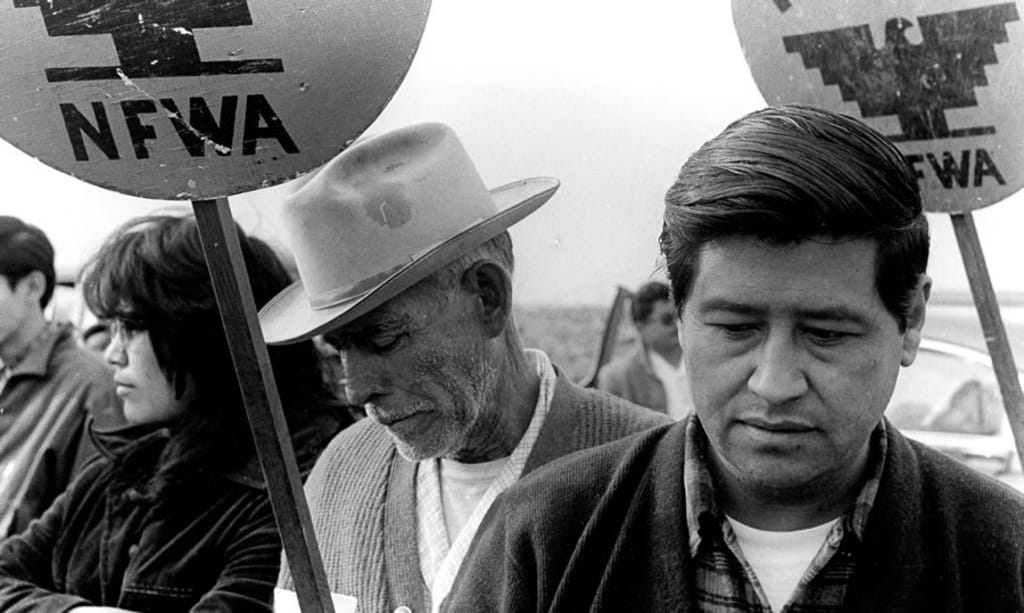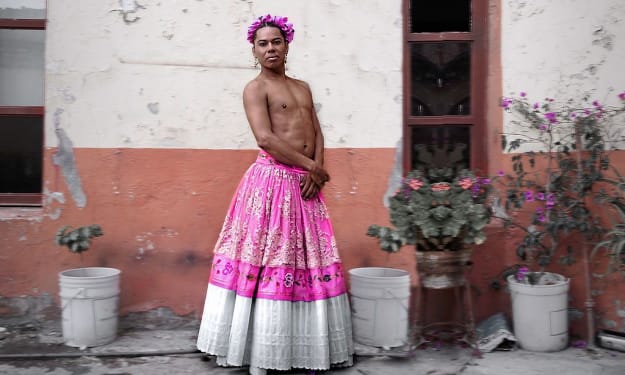The Importance of Cesar Chavez, Now and Then
A Story to Remember and Be Retold

As a young student, I learned about Martin Luther King, Abraham Lincoln, Malcolm X, John F. Kennedy, Harriet Tubman, and other great American activists and leaders, all of whose stories had an incredible impact on American history.
I also learned about another historical figure who had equal impact on the history of the United States.
Cesar Chavez, the co-founder of the United Farm Workers Association who became a civil rights icon for fighting for appropriate conditions for farm laborers, is a prominent Mexican-American activist. His story in particular profoundly resonated with me. As a Mexican citizen, Chavez's efforts to nonviolently reform the conditions for farm workers and establish a farm worker's union was something I could be proud of.
Chavez was born to immigrant parents who worked as farm workers in California. At an early age, he experienced the harsh conditions faced by farm workers such as unfavorable migrant camps, inadequate pay wages, racial profiling, discrimination, and corrupted labor contractors and employers.
Thousands later joined Chavez in boycotts, strikes, and marches when he founded the National Farm Workers Association in 1962, which joined the Agricultural Workers Organization Committee in a strike against Californian grape growers the same year. Ultimately, Chavez and his followers gained national attention and forced many farm owners and growers to compromise with the laborers by raising wages and improving conditions for farm workers in California, Arizona, Texas, and Florida.
Once social change begins, it cannot be reversed. You cannot un-educate the person who has learned to read. You cannot humiliate the person who feels pride. You cannot oppress the people who are not afraid anymore."
Chavez's efforts not only put a spotlight on the harsh and inhumane conditions experienced by the farm workers, most of which were Mexican immigrants, but to Latino issues and concerns altogether.
March 31 was officially declared Cesar Chavez Day in 2014 by former President Barack Obama. Many classrooms, campuses, agricultural centers, and Latino communities honor the late activist on this official commemorative holiday. However, the concern is that many Mexican-American and Latinos of younger generations are not knowledgeable of his legacy. Moreover, many are not aware that the workers whom Chavez so bravely fought for are still experiencing a harsh reality.
Of the almost three million farmworkers in the U.S., 99 percent are Latinos, and about half of the laborers are undocumented, according to the United States Department of Agriculture. That means they are excluded from receiving federally subsidized services such as Medicaid or food stamps. Moreover, only about 47 percent of farmworkers claim to have health insurance despite the well-documented occupational hazards, including heat exhaustion and exposure to pesticides. Most farm laborers claim to pay out-of-pocket for their care even though the average annual income for a farmworker is between $10,000 and $13,000. This is a staggering reality for those picking the crops ,while in 2017, the U.S. generated $1.053 trillion dollars in the agricultural industry alone.
It is obvious that Chavez's vision for civil rights for farm workers isn't complete. In this era of the Trump administration, Latino farm workers, especially those who are undocumented, are subjected to brutal conditions and treatment, including possible deportation.
Much like many other activists and civil leaders of our time, it is up to us, the American public, to encourage each other to continue on with their fight after their passing. Cesar Chavez passed away on April 23, 1993.
We cannot, however, continue to undertake the efforts taken by Chavez and thousands of his followers and supporters without educating those who aren't aware of this particular part of American history. It is our duty as Mexicans, Mexican-Americans, and Americans to teach our younger generations not only the struggles, the endeavors, and the victories of individuals like Chavez, but also instill in them the courage to continue with their fight.
"Preservation of one's own culture does not require contempt or disrespect for other cultures."
If you aren't part of a Latino community, don't live in the Southwestern region of the U.S., don't have relatives or ancestors of Mexican-American or Latino descent or seek to self-educate, it is likely that you won't thoroughly know the history of Cesar Chavez or Dolores Huerta, who founded the NFA along with Chavez, and their supporters.
Now is a great time to share the story of these incredible people, even more so in our current state of ethnical and racial disparities.
About the Creator
Jose Soto
I am a writer and journalist born and raised in the El Paso, Texas and the Ciudad Juárez, Chihuahua, México, region. I write stories, blogs, essays, and prose that help myself and readers discover what it means to be human.
Enjoyed the story? Support the Creator.
Subscribe for free to receive all their stories in your feed. You could also pledge your support or give them a one-off tip, letting them know you appreciate their work.






Comments
There are no comments for this story
Be the first to respond and start the conversation.